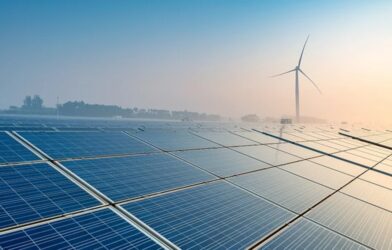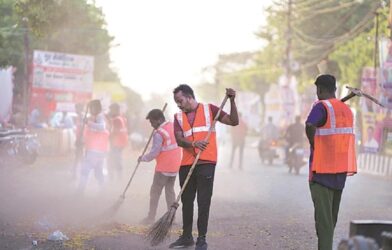During a high-level BRICS meeting hosted by Brazil in July, Indian Prime Minister Narendra Modi urged developed countries to fulfil their funding commitments and technology transfers, calling for immediate action on climate justice and global health security. In his remarks during the BRICS session on environment, COP-30, and global health, Modi underlined the close connections between public health, environmental sustainability, and climate change and the need for a coordinated response.
He stated, “For us, it’s not just about energy; it’s about maintaining a balance between life and nature,” characterising India’s strategy as having its roots in moral obligation and culture. Modi stated that the BRICS (Brazil, Russia, India, China, and South Africa) group must take the lead on climate concerns, as Brazil would hold COP-30 later this year. He listed India’s major environmental projects, such as the Green Hydrogen Mission, the International Solar Alliance, the Coalition for Disaster Resilient Infrastructure, and Mission LiFE (Lifestyle for Environment). Modi pointed out that India is the first G20 country to fulfil its Paris Agreement obligations ahead of time, even though it has the fastest-growing major economy.
He reiterated India’s aim to reach net-zero emissions by 2070 and pointed to a 4,000% increase in solar energy capacity over the last ten years. Under the tenet of “People, Planet, and Progress”, Modi stated that India is moving forward on a development path that is pro-people and pro-planet. “We are transforming our mindset, our behaviour, and our lifestyle,” he added. Modi reaffirmed India’s long-standing need for climate justice while cautioning that without funding and technological assistance for impoverished countries, climate ambition will remain “climate talk”. “Climate justice is a moral obligation, not just a choice,” he stated.
“Developed nations have a unique and important responsibility to bridge the gap between climate ambition and climate financing.” He hailed the BRICS leaders’ ratification of the “Framework Declaration on Climate Finance” as a positive step towards just climate action. The Indian prime minister also emphasised the COVID-19 pandemic’s teachings, which connect human health to the health of the world. “Visas are not necessary for viruses, and passports cannot be used to select solutions,” he stated. The efforts of India within the “One Earth, One Health” concept were emphasised, especially Ayushman Bharat, the largest health insurance program in the world, which provides coverage to over 500 million people.
Additionally, Modi cited India’s expanding digital health infrastructure as well as traditional medical practices like yoga and ayurveda. He praised the acceptance of the “BRICS Partnership for Elimination of Socially Determined Diseases” declaration and the establishment of the BRICS Vaccine R&D Centre in 2022. As India prepares to lead BRICS next year, Modi promised to put the needs of the Global South first and advance a “humanity-first” and people-centred agenda.
In order to emulate India’s inclusive strategy during its G20 leadership, he suggested reframing BRICS as “Building Resilience and Innovation for Cooperation and Sustainability”. In closing, Modi thanked Brazilian President Luiz Inácio Lula da Silva for organising the summit and acknowledged Brazil’s leadership in bringing attention to matters that are vital to the future of humanity.















Comments are closed